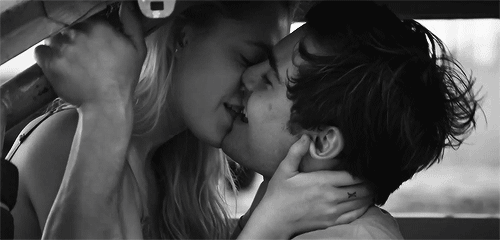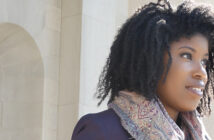No matter the culture, religion or location, we all love kissing. Kissing is used to express any of the followings-love, passion, romance, sexual attraction, sexual activity, sexual arousal, affection, respect, greeting, friendship, peace and good luck, among many others. In some situations, a kiss is a ritual, formal or symbolic gesture indicating devotion, respect, or sacrament.
Longest Kiss Ever.
Ekkachai Tiranarat and Laksana Tiranarat started kissing on February 12 in Pattaya, Thailand, and didn’t stop until Valentine’s Day to enter the Guinness World Record for the longest kiss in history. Can you beat that 3 days of kissing?! That was in 2013.
In A Movie.
Slightly less time-consuming was the record for longest movie kiss ever recorded, the 3-minute-and-24-second lip-lock between two ladies in the 2010 movie Elena Undone. They broke the record previously set in 1941 in the film You’re in the Army Now, which lasted 3 minutes and 6 seconds. ‘The actors’ lips were glued together, so some people felt it shouldn’t count,’ said filmmaker Nicole Conn. By the looks of the kiss, it’s clear that there was no glue needed.
Genesis Of Your Kissing Style.
Common statistics show that two-thirds of people tilt to the right when they kiss, but what’s really fascinating is that your kissing style is actually genetic: German researcher Onur Güntürkün spied on couples in public places like parks, beaches, and airports in three different countries until he was able to conclude that most of the 224 smoochers leaned right. His major conclusion: Chances are, you’re likely to lean to the right, since that’s the direction our heads tilt in the womb. Fortunately, while kissing, your right is the other person’s left, which is great news if you’re worried about going the same way and bonking heads.
Weird Laws About Kissing
In Iowa or Indiana to men with mustaches kissing women in public will get citation from the police. But that law is on the books in those states. So is the law against men in Colorado kissing a woman while she is sleeping or kissing her at all on a Sunday. And in Florida, kissing your wife’s breast is a no-no.
Women Have Cleaner Kisses
Women are more likely than their male counterparts to initiate an early morning kiss in bed, possibly because they floss more often, so they’re less worried about bad breath, according to this infographic from Dental Plans. Women also have men outnumbered when it comes to brushing their teeth twice a day, but the odds of a woman telling her partner whether he or she has bad breath are just about even regardless of gender. Women are also more forthcoming when it comes to telling their partner if they have something stuck in their teeth. Guess the guys are erring on the side of caution—or perhaps they just don’t notice?
Fear Of Kissing.
Fear of kissing is a legitimate phobia known as philemaphobia (philema is the Greek word for kissing). It’s most common among young or inexperienced kissers, but even in people of all ages, it may not get better with time and experience without the help of a therapist. But here’s the thing: Those whose fears are tied to the 80 million bacteria exchanged during kissing should know that it actually helps boost your immune system to swap that bacteria with others—it’s good for your teeth, too.
X In XO
Who better to ask for kissing facts than a man whose full-time job it is to track down trivia? David Jacobson of Trivworks says that the ‘X’ in ‘XO’ is the letter that stands for the kiss, and cites several theories as to why that is. ‘The prevailing theory for how this came to be so prevalent, particularly at the end of written correspondence, is that during Medieval times, many people didn’t know how to read or write,’ he says. ‘Rather, when signing important documents, they would simply draw or imprint an ‘X,’ an abbreviation for the word ‘Christ,’ which they would then kiss, out of reverence.’ Thus, over time, the ‘X’ came to be associated with the act of kissing itself, which is why it is believed to still be used in this fashion today.
Origin Of The French Kiss
The French have always been notorious for being adventurous and passionate in all matters of love and its expression. At one time, the ‘French Kiss’ was known as a ‘Florentine Kiss’; the theory is that both American and British men coming back from Europe after World War I were planting ones on their wives with so much newfound fervor—and, gasp, enthusiasm for using their tongues—that people assumed they must have picked up this new set of skills while stationed in France. Which, in all fairness, they probably did.




